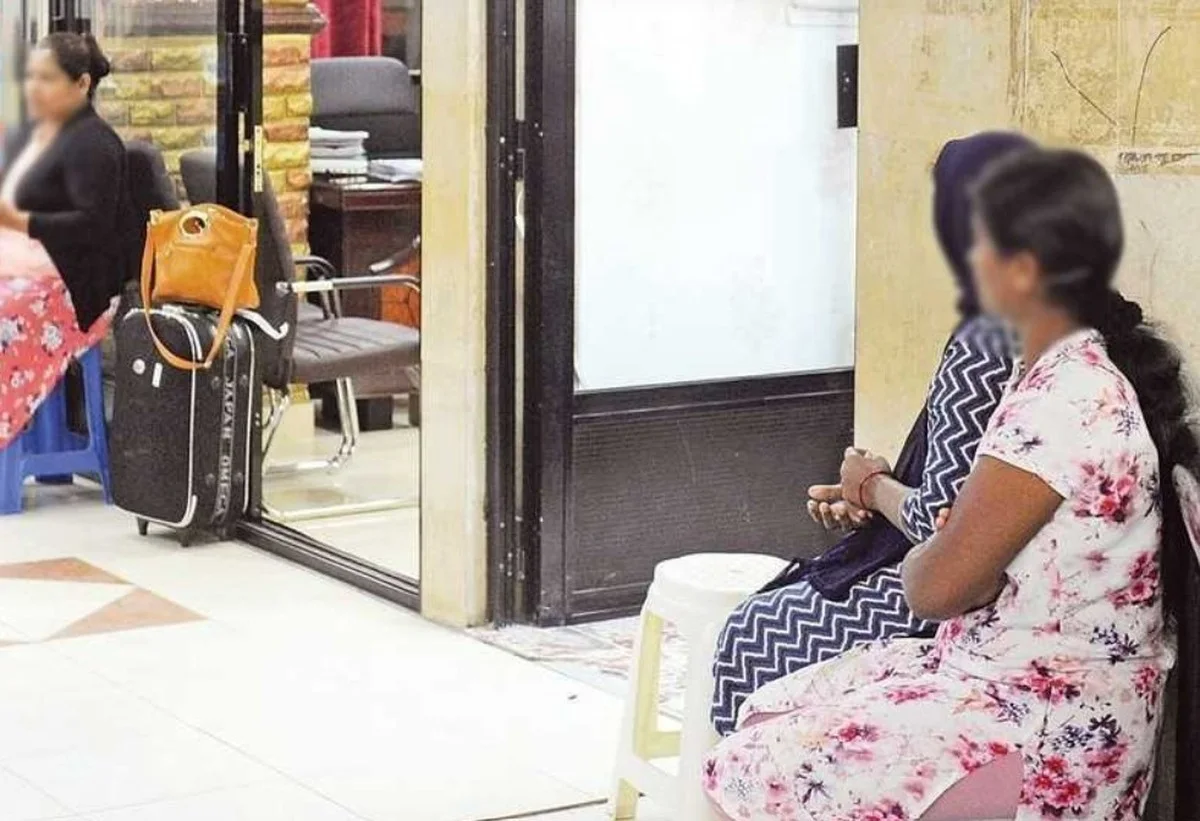11/09/2025
11/09/2025

Every year, thousands of expats, particularly from Asia and Africa, arrive in Kuwait hoping to build a better future. For some, the dream comes true—they find work with educated, respectful families who treat them fairly. But for many others, reality is far harsher. They end up in the hands of unscrupulous employers who see them not as workers, but as disposable servants—or worse, as objects for exploitation. Navigating life as a domestic worker in Kuwait can be full of risks, challenges, and hidden pitfalls, making it crucial to know your rights, protections, and the steps to stay safe.
A domestic visa is Article 20
1. Legal Rights and Employment Contract
Every domestic worker in Kuwait must have a written contract approved by the Ministry of Interior or the Public Authority for Manpower (PAM).
Contracts typically cover job duties, working hours, salary, leave, and repatriation rights.
- Ensure you have a written contract approved by the Kuwaiti authorities.
- Check it clearly mentions: job duties, salary, working hours, leave, and repatriation.
- Read and understand everything before signing; don’t rely on verbal promises
2. Minimum Wage and Salary
Kuwait sets minimum wages for domestic workers, which must be paid monthly. Salary should be paid on time and fully, usually through bank transfer or in cash with a receipt.
- Confirm your monthly salary and payment method (cash or bank transfer).
- Ask about the salary payment schedule and receipts.
- Be aware of any allowances or deductions.
- Keep salary slips, contracts, messages, and any proof of work done
- Make sure there is no misunderstanding regarding deductions or allowances
- If the Salary is delayed, politely remind your employer about the pending salary. (If the unpaid salary persists, PAM and your embassy can take legal action against the employer when you complain)
3. Working Hours and Rest
Standard working hours are around 8–9 hours per day.
Domestic workers are entitled to weekly rest days and adequate rest during the day.
- Workers are entitled to at least 1–2 hours of rest during the day for meals, prayer, or relaxation.
- Weekly rest: Domestic workers must get 1 full day off per week. Some contracts allow half-days for smaller breaks, but one complete rest day is standard.
* Work (morning chores) 4 hours
* Rest / Meal break 1 hour
* Work (afternoon chores) 4 hours
Total 8 hours of work + 1 hour rest
- Employers cannot extend your work hours without consent
- Any work beyond standard hours should ideally be paid as overtime, though domestic workers are often exempt from official overtime rules in practice.
- Regular breaks and rest are crucial for health and safety
4. Leave and Holidays
Domestic workers are entitled to annual leave, typically 30 days per year. Some leave policies include sick leave and official public holidays.
- Duration of Leave: Domestic workers are generally entitled to 30 calendar days of annual leave per year
- Leave accrues after completing at least one year of service with the same employer.
- For employment less than a year, leave may be prorated based on months worked.
Timing of Leave
- Leave is usually mutually agreed upon between the employer and worker.
- Employers are encouraged to grant leave at a convenient time without penalizing the worker.
Leave Pay
- During annual leave, workers are entitled to full salary.
- Some contracts may also include travel allowances if leave involves returning home.
Carry-Over Policy
- If leave is not used within the year, some employers allow carry-over to the next year, but this should be clarified in the contract.
Special Circumstances
- If the worker’s contract ends before using accrued leave, the employer must pay compensation for unused leave.
Public Holidays
- Annual leave is in addition to official public holidays recognized in Kuwait.
5. Safe and Healthy Working Conditions
Employers must provide a safe living and working environment, including proper accommodation, food, and medical care. Harassment or abuse is illegal, and domestic workers have the right to report violations.
- Employer must provide a safe living space, food, and necessities.
- Ask about room arrangements and privacy.
- Confirm if you have medical insurance or access to healthcare.
- Know what to do if you fall ill or get injured at work.
6. Repatriation Rights
Employers are legally required to cover repatriation costs at the end of the contract or in case of termination.
Domestic workers cannot be forced to pay for their travel back home.
7. Access to Government Support
Domestic workers can report abuse, harassment, or unpaid wages to the Public Authority for Manpower (PAM).
The Indian, Filipino, or other embassies can intervene in disputes and assist with safe repatriation.
8. Health and Medical Benefits
Some contracts include medical insurance.
Workers have the right to seek medical attention if injured or ill due to work conditions.
9. Freedom from Exploitation
Sponsors cannot confiscate passports or force workers to stay against their will.
Any threats, forced labor, or illegal demands (like paying for repatriation) are against the law.
To know more questions on legal queries, visit our Legal Clinic section. For new queries, email us at [email protected]


